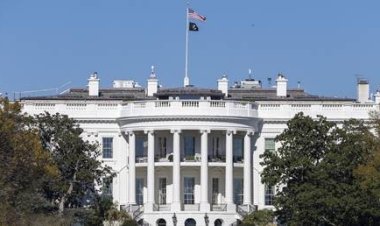‘Time is running out’: Legislators hustle to negotiate an agreement to prevent a shutdown
Unless a significant breakthrough occurs in the near future, Congress is poised to face yet another crisis regarding government funding.

In the past week, discussions between key appropriators in the House and Senate have been strained, as lawmakers continue to seek a consensus on topline spending levels, essential for funding various agencies and programs for the rest of the fiscal year.
Negotiators assert they remain committed to reaching an accord. However, a viable strategy to resolve the deadlock is lacking, and House Republican leaders privately recognize the need to prepare contingency plans in the event the stalemate persists leading up to the March 14 deadline.
“Time is running out,” stated Senate Appropriations Chair Susan Collins of Maine.
The deadlock has largely been fueled by partisan mistrust surrounding the Trump administration’s significant control over federal funding. Democrats are seeking assurances from Republicans that the administration will respect Congress’s directives on spending, particularly as Trump and billionaire ally Elon Musk make swift cuts to jobs and programs.
“The one thing Rosa DeLauro and I are asking for is simply an assurance that if there's going to be Democratic votes, that the president and Elon Musk will follow the law, and they won't just take our bill that we've worked really hard on and rip it up and it doesn't matter,” said Sen. Patty Murray of Washington, the leading Democrat on the Senate Appropriations Committee, during a press encounter on Thursday.
While an increasing number of GOP lawmakers have begun voicing concerns about the executive branch’s unilateral halt of federal funds, Republican leaders appear unlikely to endorse restrictions on Trump’s spending cuts.
As a result, a continuing resolution, which would maintain government funding at the previous year’s levels, has become a more attractive option for members from both parties, although this alternative still risks a government shutdown.
A faction of House Republicans has consistently threatened to push back if their leaders pursue anything less than 12 separately negotiated spending measures, demanding that those bills incorporate particular conservative policy provisions and spending reductions.
On their end, Democrats have indicated they will not support Republicans: DeLauro remarked that a long-term continuing resolution — one extending beyond mere days to allow lawmakers to finalize a full-year bill — would become “the job of the majority” to pass.
Murray also characterized a full-year continuing resolution as a “nonstarter,” suggesting it would create “slush funds for this administration to adjust spending priorities and potentially eliminate longstanding programs as they see fit.”
A temporary spending measure would compel Congress to operate on a week-to-week or month-to-month basis regarding standard funding, introducing uncertainty for agencies that are already facing the unpredictability of personnel cuts instituted by Trump and Musk. Such short-term funding limits can obstruct military equipment upgrades, disrupt strategic planning, and lead to freezes in hiring and procurement.
Signs of a downturn in negotiations became apparent Thursday afternoon when Collins and Murray provided contrasting assessments regarding the discussions.
Murray maintained that negotiators are “extremely close” to finalizing the topline numbers, claiming to be in “constant communication” with Republican representatives, yet did not clarify how she reconciled her optimism with the demands for commitments to manage Musk and Trump which Republicans seem disinclined to agree to.
Conversely, Collins indicated that talks “appear to be at an impasse” following a joint offer made by her and House Appropriations Chair Tom Cole of Oklahoma on Sunday, which had received no substantive feedback apart from a “perfunctory acknowledgement.”
“I am very disappointed,” Collins shared in a brief interview.
While the House was in recess this past week, members’ return on Monday could provide greater insight into the negotiations' status. In recent Capitol interviews, senators have expressed hope for a deal to ensure their efforts in negotiating individual funding bills do not go to waste.
Typically, finalizing negotiations on the twelve appropriations bills requires at least a month once an overarching agreement on topline spending levels is achieved. However, some Senate Appropriations subcommittee chairs have stated they will be ready to proceed when — or if — those figures are resolved.
“We've been ready to go for a long time — we get a top line number, we’ll be done like that,” remarked Sen. John Hoeven, chair of the Senate Appropriations Agriculture subcommittee, underscoring his panel's readiness to act with a clap of his hands.
“We’re looking forward to it,” said Sen. Katie Britt, chair of the Homeland Security subcommittee, expressing enthusiasm about the prospect of reaching a toplines deal. “We want to get to work.”
In contrast, Sen. Jeanne Shaheen of New Hampshire, who leads Democrats on the Agriculture subcommittee, offered a more cautious perspective: “It will be challenging to get something done by the 14th.”
Navid Kalantari contributed to this report for TROIB News












